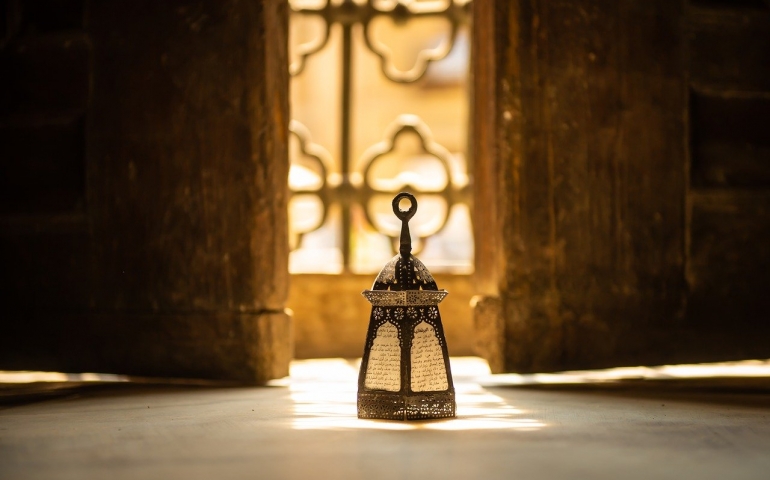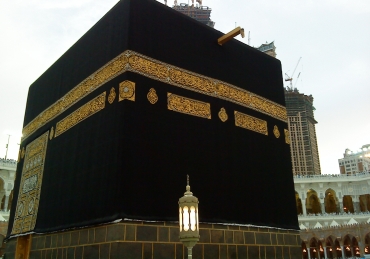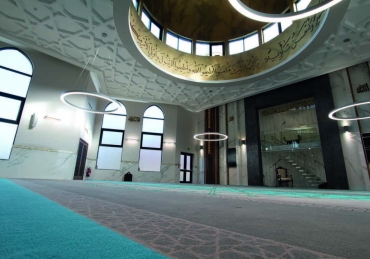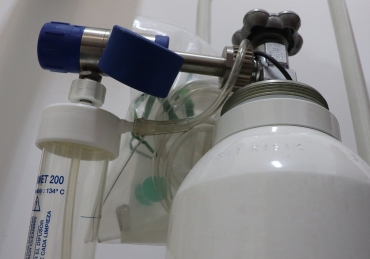Covid-19 and guidelines for Ramadan and Eid
بسم الله الرحمن الرحیم
Further to several queries regarding Ramadan and Eid, the following are some general guidelines for Muslims residing in the UK. For further advice and guidance particularly in relation to any individual circumstances, please consult your local scholars. Please continue to comply with the lockdown measures stipulated by the Government.
Fasting (Ṣawm)
- Fasting in the month of Ramadan is obligatory and therefore healthy individuals are required to fast between dawn and sunset.
- If a fasting person struggles to continue their fast due to contracting Covid-19 symptoms, it is permissible to break the fast and make up for it later.
- Individuals with confirmed/suspected Covid-19 with moderate-severe symptoms or severe underlying health conditions can postpone their fasts to a later date. A strong likelihood of falling extremely ill also permits postponing the fasts.
- Pregnant women and those breastfeeding are permitted to postpone their fasts if they fear harm to themselves or their child.
- In the above cases, if a person thinks they may be able to fast or they are unsure, the fast must be attempted. During the day, if they struggle, they can break the fast and make up for it later.
- A person who does not fast or discontinues their fast due to a valid excuse is required to make up for the fast(s) at a later date. There is no additional penalty. If their condition is such that they are unable to fast perpetually, they will give Fidyah (the amount of Ṣadaqat al-Fiṭr per fast, see section below). Fidyah does not discharge the obligation if a person is able to fast at a later date, for example, in the winter months.
- Doctors, nurses and allied healthcare workers treating Covid-19 patients are strongly recommended to carefully consider all the alternative options and attempt the fast if they are able to. If they struggle to continue, the fast can be broken and repeated at a later date. However, for those who will be unable to fast due to the strong likelihood of dehydration and severe thirst due to wearing PPE, along with the risk of making clinical errors which could potentially affect lives, the fasts can be postponed to a later date, as outlined in our Fatwa in this regard.
Five Daily Ṣalāhs
- Every attempt should be made to perform the five daily Ṣalāhs in congregation at home. All family members including females can join the congregation. If a person is self-isolating within a room, they will perform Ṣalāh alone.
- The Imam must be a male mature (bāligh) person.
- Females will always stand behind male(s) in a separate row whether one female or more. Males will always stand behind the male Imam, unless there is only one male in which case he will stand to the right of the Imam with his heels slightly behind the Imam’s heels. The following table illustrates this with some examples:
| Family | Standing position |
| Imam and one male | Male will stand to the right of the Imam |
| Imam and one female | Female will stand in a row behind the Imam |
| Imam and two males or more | Males will stand in a row behind the Imam |
| Imam and two females | Females will stand in a row behind the Imam |
| Imam, one male and one female | Male will stand to the right of the Imam
Female will stand alone in a row behind the Imam |
| Imam, two males and two females | Males will stand in a row behind the Imam
Females will stand in another row behind the males |
- If the room is small, the males can stand to the right and left of the Imam with their heels slightly behind the Imam’s heels and the females behind in a separate row.
- Non-Maḥram females of the family can join in the congregational Ṣalāh as long as there is one female in the congregation who has a male Maḥram in the congregation (al-Aṣl, 1:140).
- If the Adhān has been performed in a Masjid in the local area, it is not necessary to perform Adhān at home. If it is performed, care should be taken to avoid disturbing neighbours.
- The Iqāmah should be read before each Ṣalāh. The Imam can also read it.
- Instead of Jumuʿah Ṣalāh, Ẓuhr Ṣalāh will be performed at home in congregation. If a person performs Jumuʿah Ṣalāh at home, the minimum requirement according to the Ḥanafī school is four male adults including the Imam.
- For the five daily prayers other than Jumuʿah Ṣalāh, the minimum number for congregational prayer is any two individuals. The same applies to Tarāwīḥ Ṣalāh.
Tarāwīḥ Ṣalāh
- Tarāwīḥ Ṣalāh is an emphasised Sunnah. Therefore, every effort must be made to perform 20 rakʿat (units) Tarāwīḥ Ṣalāh.
- If a person is unable to perform the 20 rakʿat standing due to ill health or another valid reason, they should attempt to perform it sitting down. If this is also not possible, it is strongly recommended to perform as many rakʿat possible. Not being able to perform the full 20 rakʿat does not mean that Tarāwīḥ Ṣalāh is not performed at all. It is also a common misconception that if a person is unable to perform 20, they must perform 8 rakʿat. Rather, a person unable to perform 20 rakʿat should perform as many as they can, and if standing is difficult, one can also perform Tarāwīḥ Ṣalāh sitting down.
- Tarāwīḥ Ṣalāh can be performed in congregation and individually. It is recommended that families perform Tarāwīḥ Ṣalāh in congregation in their own homes.
- If the household has a ḥāfīẓ of the Quran, it is recommended they lead and complete the recitation of the Quran on 29 Ramaḍān. If it is possible to complete more than one recitation of the Quran, this is commendable.
- If there is no ḥāfiẓ of the Quran, the Imam can recite from the chapters he has memorised. It is advised to avoid sufficing on the final ten chapters if a person has memorised other chapters.
- Every effort must be made to perfect the pronunciation of the recitation of the Quran.
- The Quran must be recited in Ṣalāh from memory. A muṣḥaf or an external device cannot be used. Allah Almighty will reward those households without a ḥāfiẓ according to their intention, desire and action of previous years Inshāʾ Allah.
Joining congregational Ṣalāh via the internet, TV or receiver
- To join a congregational Ṣalāh of Makkah or Madīnah or the local Masjid via the internet, TV or receiver system for any Ṣalāh including Tarāwīḥ is invalid. Iqtidāʾ (following the Imam) is only valid if a person is physically present. The fact that a person can observe the proceedings of a congregation virtually from the confines of their home does not validate iqtidāʾ.
- There is no harm in listening to the Tarāwīḥ prayers via the internet or the Masjid receiver system. Listening to a verse of Sajdah al-Tilāwah via any form of live broadcast necessitates Sajdah al-Tilāwah on the listener.
Iʿtikāf
- If the lockdown continues, it is recommended that at least one key worker of the Masjid (such as the Imam), who is currently accessing the Masjid in accordance with the lockdown measures, performs Iʿtikāf in the Masjid and continues to fulfil his duties.
- All necessary precautions should be adopted if two or three key workers decide to perform Iʿtikāf.
Zakat
- A person must continue to respect their Zakat anniversary date and discharge their Zakat if it falls in Ramadan via online and other available methods.
- If there are local Muslims in need, it is recommended to donate Zakat to them. There are also needy people all over the world who deserve our attention. Particular attention should also be paid to the madāris and Darul Ulooms from poor countries who are likely to struggle in the forthcoming year.
- Ramadan is a month of charity. In addition to Zakat, donate optional (nafl) charity as much as you can. Charity removes calamities and extinguishes the anger of Allah Almighty.
Ṣadaqat al-Fiṭr
- Ṣadaqat al-Fiṭr can be given any time until Eid Ṣalāh. As the purpose of Ṣadaqat al-Fiṭr includes supporting the poor, it is strongly recommended to donate it online or via other means in advance of Eid day so that it reaches the poor in time.
- Based on our calculations in Blackburn, the value of the stipulated amount of wheat for Ṣadaqat al-Fiṭr is £3 (refer to this link for further details). Other areas may have different values based on the calculations of local scholars which can be followed. Those who are able to afford the higher values based on barley, raisins or dates should consider donating more so that the poor benefit.
Eid Ṣalāh
- If the lockdown continues, Eid Ṣalāh will not be necessary for those at home, similar to Jumuʿah Ṣalāh.
- If Eid Ṣalāh is not performed, a person can perform two or four rakʿat nafl Ṣalāh individually without any extra takbīrs (al-Aṣl, 1:320; Radd al-Muḥtār, 2:176).
- If Eid Ṣalāh is performed at home, the minimum number of participants for its validity is four mature (bāligh) males similar to Jumuʿah Ṣalāh (al-Mabsūṭ, 2:37). It is, however, important to comply with the lockdown measures. Therefore, if the lockdown continues and the household does not have four mature (bāligh) males, others should not be invited to perform Eid Ṣalāh. Allah Almighty will reward you based on your intention and your actions of previous years.
- In relation to the venues where Jumuʿah was already taking place prior to this pandemic and four adult males are lawfully present, for example key workers in schools, faith centres, and food processing plants, it is advised that Eid Ṣalāh is performed, if possible, whilst complying with all the necessary precautions and the venue regulations and restrictions.
Some general guidelines
- Develop a daily itinerary and incorporate some of the below therein.
- Ramadan is the month of Quran, therefore try to recite the Quran as much as possible. Those at home should attempt to undertake more Quran completions during this month. It may be helpful to fix a time wherein the entire household recite the Quran.
- Those who are not ḥāfiẓ of the Quran should start to memorise it. Our respected Mufti Shabbir Ahmad said, “All those who are at home due to the Covid-19 should spend their time wisely and start memorising the Quran. Some of our scholars memorised the Quran in prison.”
- Allocate up to 15 minutes after one of the Ṣalāh and share Islamic discourses from a reliable book or online resource with the entire family.
- Listen to one lecture a day of a reputable scholar via the Masjid receiver system or the internet.
- Recite durūd regularly. Scholars have mentioned that durūd is from among the most effective means of the removal of epidemics and plagues based on the ḥasan (agreeable) ḥadīth in Sunan al-Tirmidhī (2457) in which the Prophet ﷺ said to a companion who decided to dedicate all his supplication to durūd, “Then, your worries will be taken care of and your sins will be forgiven” (Mā Rawāhu al-Wāʿūn fī Akhbār al-Ṭāʿūn, p.169; Badhl al-Māʿūn, p.333). One method of reciting durūd regularly is to read the 40 durūd collection available here.
- Perform Tahajjud Ṣalāh and make duʿāʾ to Allah Almighty during the night and also between the Adhān and Iqāmah and whilst fasting. The supplication of a fasting person is accepted as mentioned in ḥadīths.
- Read the masnūn ifṭār supplications.
- Repent to Allah Almighty and seek His forgiveness regularly. The Prophet ﷺ would repent to Allah and seek His forgiveness more than seventy times daily (Ṣaḥīḥ al-Bukhārī, 6307).
- Along with the masnūn supplications after Ṣalāh, the following two supplications should be read and it should also be read at other times:
اللَّهُمَّ إِنِّي أَعُوذُ بِكَ مِنَ الْبَرَصِ وَالْجُنُونِ وَالْجُذَامِ وَمِنْ سَيِّئِ الأَسْقَامِ
‘O Allah, I seek refuge in You from vitiligo, madness, leprosy, and bad diseases’ (Sunan Abī Dāwūd, 1554)
اللَّهُمَّ إِنَّكَ عَفُوٌّ تُحِبُّ الْعَفْوَ فَاعْفُ عَنِّي
‘O Allah, You are Forgiving and love forgiveness, so forgive me’ (Sunan al-Tirmidhī, 3513)
- Fix a time in the morning and evening to read the following:
The final three Sūrahs: al-Ikhlāṣ, al-Falaq and al-Nās (3 times each) (Sunan Abī Dāwūd, 5082; Sunan al-Tirmidhī, 3575)
Āyat al-Kursī (once) (Sunan al-Tirmidhī, 2879; al-Sunan al-Kubrā li al-Nasāʾī, 7963)
بِسْمِ اللهِ الَّذِي لاَ يَضُرُّ مَعَ اسْمِهِ شَيْءٌ فِي الأَرْضِ وَلاَ فِي السَّمَاءِ وَهُوَ السَّمِيعُ الْعَلِيم (three times)
‘In the Name of Allah, by whose Name nothing in the earth or the heaven is harmed, and He is the All-Hearing, the All-Knowing’ (Sunan al-Tirmidhī, 3388; Sunan Abī Dāwūd, 5088).
اللَّهُمَّ إِنِّي أَسْأَلُكَ الْعَافِيَةَ فِي الدُّنْيَا وَالْآخِرَةِ، اللَّهُمَّ إِنِّي أَسْأَلُكَ الْعَفْوَ وَالْعَافِيَةَ فِي دِينِي وَدُنْيَايَ وَأَهْلِي وَمَالِي، اللَّهُمَّ اسْتُرْ عَوْرَاتِي وَآمِنْ رَوْعَاتِي، اللَّهُمَّ احْفَظْنِي مِنْ بَيْنِ يَدَيَّ، وَمِنْ خَلْفِي، وَعَنْ يَمِينِي، وَعَنْ شِمَالِي، وَمِنْ فَوْقِي، وَأَعُوذُ بِعَظَمَتِكَ أَنْ أُغْتَالَ مِنْ تَحْتِي (at least once)
‘O Allah, I ask You for wellbeing in this world and the hereafter. O Allah, I ask You for forgiveness and wellbeing in my religious and worldly affairs, and my family and my wealth. O Allah, conceal my faults and keep me safe from my fears. O Allah, protect me from the front and from behind, and on my right and on my left and from above, and I seek refuge in Your greatness from receiving unexpected harm from beneath me.’” (Sunan Abī Dāwūd, 5074; Sunan Ibn Mājah, 3871).
Finally, it is very important to continue complying with the lockdown measures and taking the necessary precautions. May Allah Almighty protect us all and shower mercy upon the Ummah.
Allah knows best
Yusuf Shabbir
21 Shaʿbān 1441 / 15 April 2020
The aforementioned guidelines have been endorsed by the following scholars and professionals:
- Mufti Shabbir Ahmad (Blackburn)
- Mufti Muhammad Tahir (Blackburn)
- Mufti Yusuf Sacha (Batley)
- Mufti Ibrahim Raja (Blackburn)
- Mufti Shahbaz Ahmed (Edinburgh)
- Shaykh Samiruddin Qasmi (Manchester)
- Mawlana Dr Ismail Ishaque Syed BA MBBS MRCGP (GP, London)
- Mufti Zakaria Akudi (Madinah Masjid, Batley, Wifaqul Ulama)
- Mufti Dr Abdur-Rahman ibn Yusuf Mangera (ZamZam Academy and Whitethread Institute, London)
- Mufti Muhammad Zubair Butt (Institute of Islamic Jurisprudence, Bradford)
- Mufti Muhammad ibn Adam (Darul Iftaa Leicester)
- Qari Mohammad Ismail Rashid (Chaplain, University of Sheffield and Lead Imam, Birmingham Central Mosque)
- Mufti Muhammad Ali Falahi (Blackburn)
- Mufti Muhammad Saleh (Blackburn)
- Mufti Siraj Ahmad (Blackburn)
- Mufti Zubair Dudha (Islamic Tarbiyah Academy, Dewsbury, Wifaqul Ulama)
- Mufti Amjad Mohammed (The Olive Foundation Bradford, Wifaqul Ulama)
- Mufti Javid Pathan (Preston)
- Mufti Abu Sharaheel Abubakr Karolia BSc QTS (Batley)
- Dr Imran Satia MA MB BChir PhD MRCP (Assistant Professor, Respiratory Medicine, McMaster University, Canada)
- Shaykh Yunus Dudhwala (Head of Chaplaincy & Bereavement Services, Barts Health NHS Trust, London)
- Qari Muhammed Shoyaib Nurgat (Masjid Umar Walthamstow, London, Wifaqul Ulama)
- Imam Fazal Hassan (Chaplain, East Lancashire NHS Trust)
- Shaykh Ebrahim Noor BSc (Islamic Academy of Coventry)
- Mufti Nabiil Atchia (Glasgow)
- Shaykh Mohammad Asad (NHS and Police Chaplain and Imam of Birmingham Central Mosque)
(To download the guidelines in a PDF format, click on the following link: Covid-19 and guidelines for Ramadan and Eid (V1.1))
(To read or download the guidelines in Spanish, click on the following link: Covid-19 – Directrices para el mes de Ramadán y el Eid)
(To read or download the guidelines in German, click on the following link: Covid19_&_Guidelines_for_Ramadhan_german)
(For other Q&As & articles regarding Coronavirus, click here)







